Day 1
Schedule
Opening Session
14:00 KST / 05:00 GMT
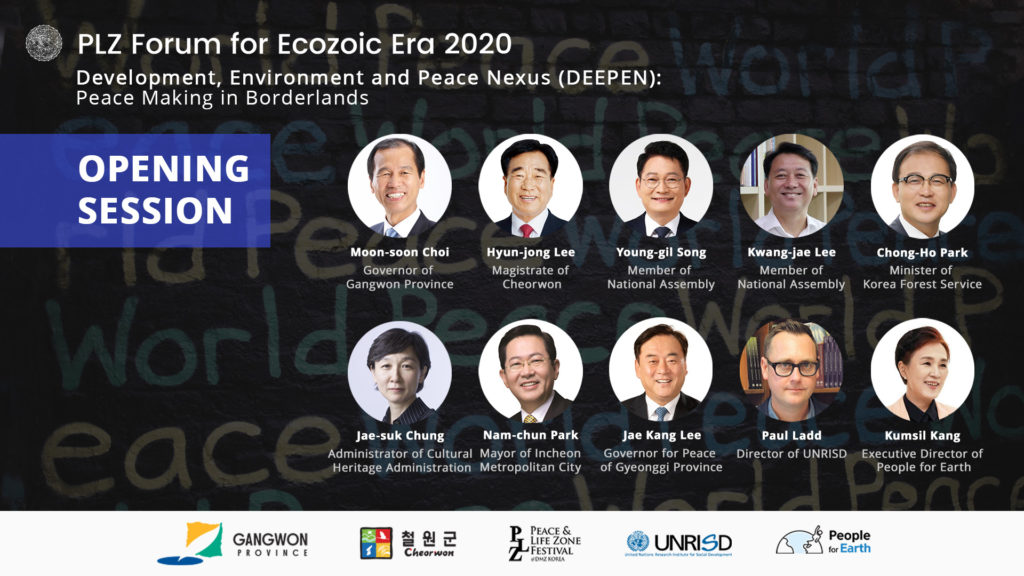
Opening Speech
This forum is the first step towards building peace in the borderlands. Representatives from domestic and overseas organizations that have hosted and organized the event will attend to deliver messages from all walks of life for peace building in the borderlands.
To celebrate the opening of the forum, a performance reminding us of peace and ecology is prepared by the Earth and People Culture Project Team.
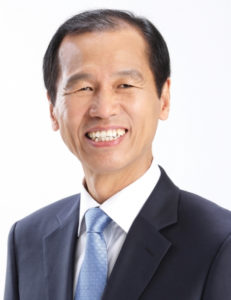
Moon-soon Choi
Governor of Gangwon Province
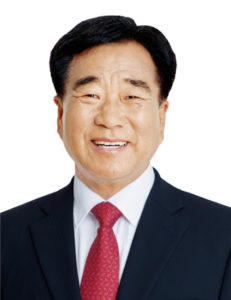
Hyun-jong Lee
Magistrate of Cheorwon
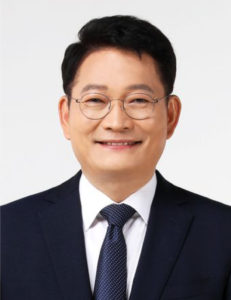
Young-gil Song
Member of National Assembly, Chairman of the Foreign Affairs and Unification Committee, National Assembly of the Republic of Korea
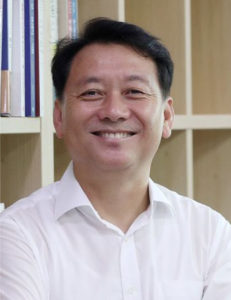
Kwang-jae Lee
Member of the National Assembly of Republic of Korea
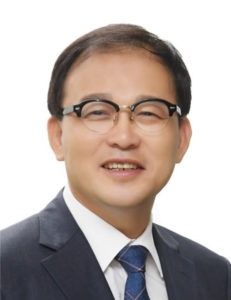
Chong-Ho Park
Minister of Korea Forest Service

Jae-suk Chung
Administrator of Cultural Heritage Administration
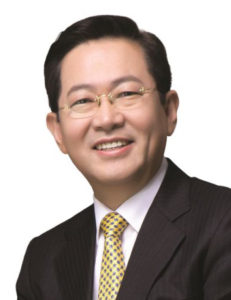
Nam-chun Park
Mayor of Incheon Metropolitan City
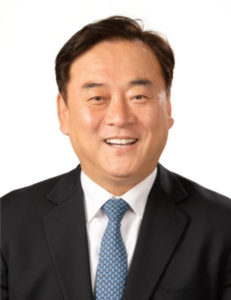
Jae Kang Lee
Governor for Peace, Gyeonggi Province
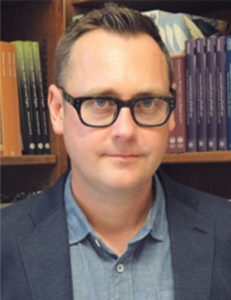
Paul Ladd
Director
Paul Ladd has been Director of UNRISD since October 2015. Before taking up this position he had been at UNDP, where he had most recently been Director of the team supporting consultations and technical inputs for the 2030 Development Agenda.
Previously he led UNDP’s policy team on ‘inclusive globalization’ – including trade, development finance, and migration. From 2008-2009, he provided support to the Office of the UN Secretary-General on the financial and economic crisis, and engagement with the G20.
Before moving to New York, Paul was a policy adviser on international development for the UK Treasury, including the period building up to and through the UK’s Chair of the G8 and European Union in 2005.
Previously he had been Chief Economist and acting Head of Policy with UK charity Christian Aid, the UK Department for International Development’s economic adviser for South Africa, Botswana, Lesotho, Namibia and Swaziland, and a financial adviser in the Central Bank of Guyana.
Paul received his BSc in Economics and his MSc in Quantitative Development Economics from the University of Warwick. In 2016 he was awarded an Honorary Doctorate in Law (LLD), also by the University of Warwick.
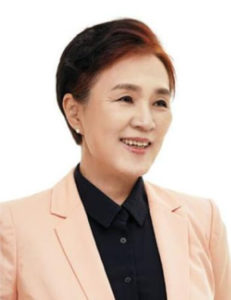
Kumsil Kang
Executive Director, People for Earth
Kumsil Kang has served as the 55th Minister of Justice of Republic of Korea. She is currently the Executive Director of People for Earth since 2015. She has published ‘Politics of Life’ in 2012, and she is now the member of the Advisory Committee of National Council on Climate and Air Quality. In 2020, she has co-written a book, ‘Earth Jurisprudence’ with 6 lawyers from People for Earth.
Opening Performance
“Long Pause”
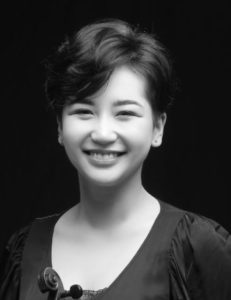
Nilufar Mukhiddinova
Violinist
– International Violin competition named after A.Glazunov – 1st Prize (France, Paris)
– 8th and 10th International Musical Competitions – 1st Prize (Ukraine, Kiev)
– Solo performance in UNESCO headquarter in France, Paris (2009), commemorating performance in Cheongwadae for Uzbekistan and Korean heads of states (2018)

Dong Hyun Baik
Pianist
– Original album ‘Natural Dream’ (released in 2012)
– Performed in Los Angeles, Austria, Serbia and Montenegro as a ‘UAngel Voice’ (K-classic vocal group)
Special Speech by In-Young Lee, Minister Of Unification
15:00 KST / 06:00 GMT
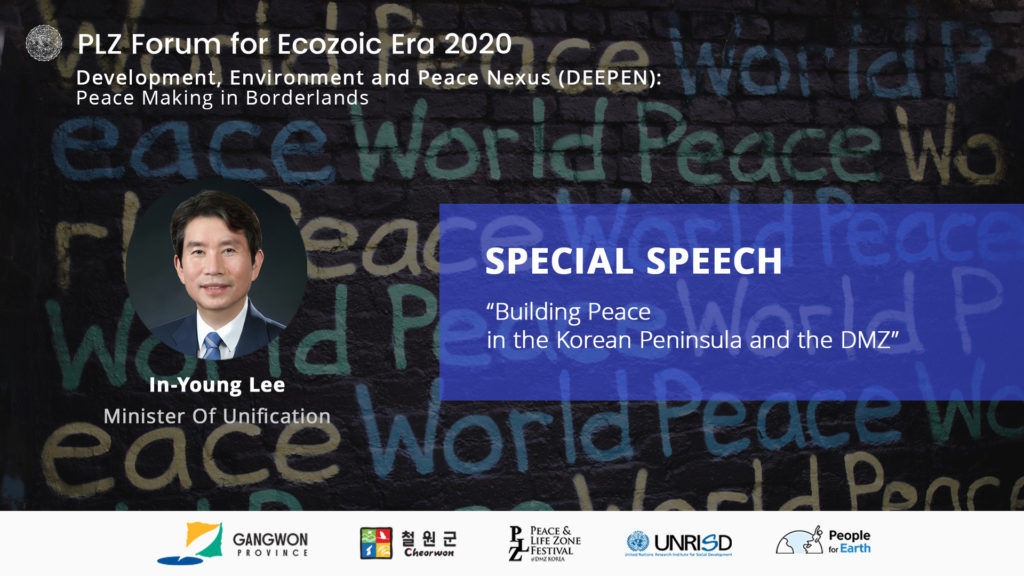
“Building Peace in the Korean Peninsula and the DMZ”
Unification Minister of Republic of Korea In-young Lee forecasts the present and future of relationship between South and North Korea, amid changes in the international relationships surrounding the Korean peninsula. He also talks about the building peace in the DMZ, which is an area where its ecosystem has been thriving as a unique space of truce for 70 years.
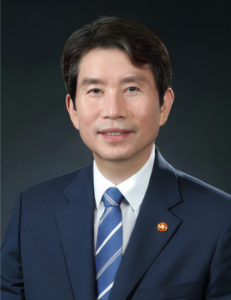
In-Young Lee
Unification Minister of Republic of Korea
Professional Career
2020.7 ~ present Minister, Ministry of Unification
2020.5 ~ present Member, the 21st National Assembly of the Republic of Korea
2020 Director, DPK’s Committee to overcome National Crisis Concerning COVID-19
2019 ~ 2020 Chairperson, House Steering Committee
2019 ~ 2020 The 20th Floor Leader, Democratic Party of Korea
2018 ~ 2019 Chairperson, Special Committee on Inter-Korean Economic Cooperation, National Assembly
2017 ~ 2018 Executive Secretary, Special Committee for Constitutional Amendment and Political Reform, National Assembly
2016 ~ 2020 Member, the 20th National Assembly of the Republic of Korea
2015 ~ 2016 Chairperson, Inter-Korean Development and Unification Committee of the New Politics Alliance for Democracy
2012 ~ 2016 Member, the 19th National Assembly of the Republic of Korea
2012 Member, Supreme Council of Democratic United Party
2010~2011 Member, Supreme Council of Democratic Party
2004~2008 Member, the 17th National Assembly of the Republic of Korea
1987 1st Chairperson, National Council of Students Representative
1987 Chairperson, the 20th Student Council of Korea University
Special Speech by Haecheol Chun, Member of National Assembly
15:30 KST / 06:30GMT
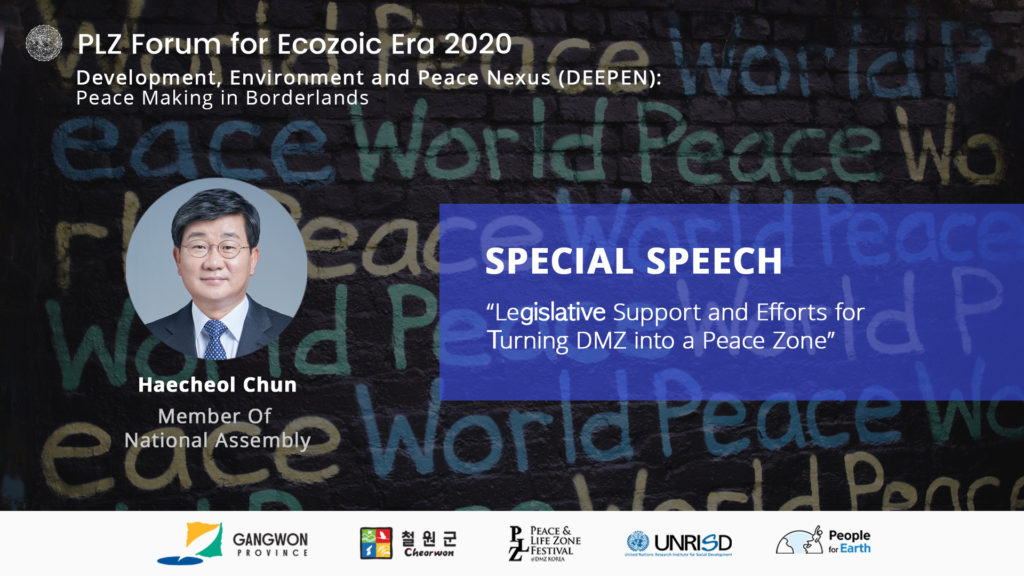
“Legislative Support and Efforts for Turning DMZ into a Peace Zone”
Rep. Haecheol Chun plays a crucial role in the peace and development of the border region as chairman of the National Assembly Intelligence Committee and a member of the Foreign Affairs and Unification Committee.
Through this special speech, he will give a lecture on the prospect of peace in the borderlands including the DMZ on the Korean Peninsula.
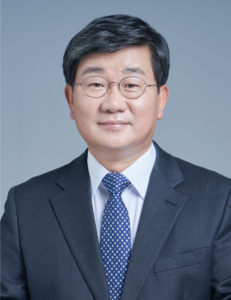
Haecheol Chun
Member of the National Assembly of Republic of Korea
Professional Career
Current Positions
- Member of the 21th National Assembly (3-Term Member / 19th, 20th, 21 th NA)
- Chairman of the Intelligence Committee, NA
- Member of the Foreign Affairs and Unification Committee, NA
- Director of Roh Moo-hyun Foundation
- Special Assistant Chief of Party Representative, Democratic Party
Previous Positions
- Completed the 2-Year Training Course at the Judicial Research & Training Institute (19th Class)
- Chief Lawyer, Law Firm Haemaroo
- Chairman of the Media Committee, Minbyun – Lawyers for a Democratic Society
- Senior Secretary to the President for Civil Affairs (Office of President Roh Moo-hyun)
- Deputy Floor Leader, Democratic Party
- Vice Chairman of the Legislation and Judiciary Committee, NA
- Chairman of the 1st Policy Coordination Committee, New Politics Alliance for Democracy
- Vice Chairman of the National Policy Committee, NA
- Chairman of the Gyeonggi-do Chapter, Democratic Party of Korea
- Supreme Council member, Democratic Party
- Vice Chairman of the Budget and Accounts Committee, NA
Session I. Borders and borderlands in the 21st century
17:00 KST / 08:00 GMT
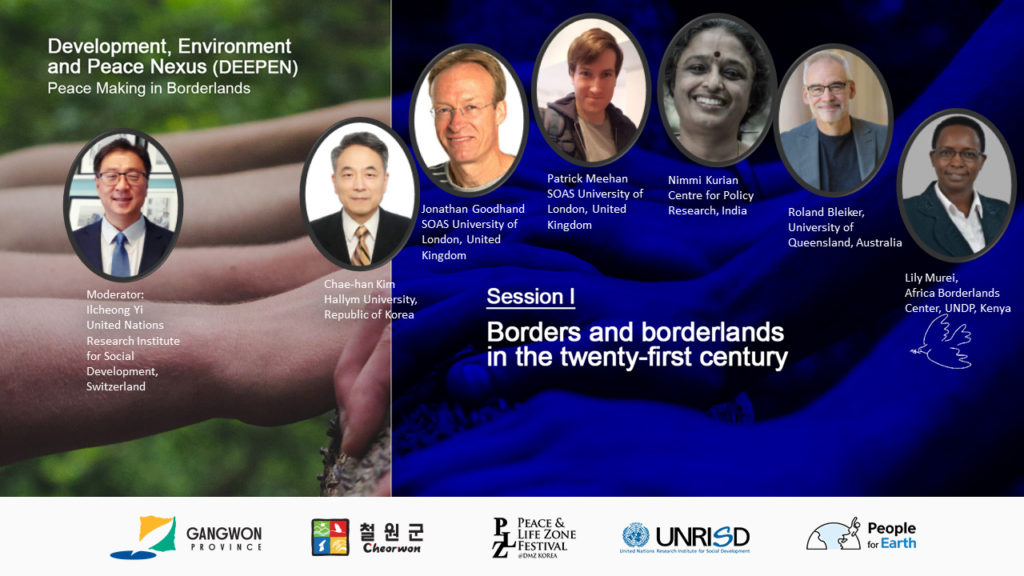
The session addresses the importance of borders in peace, ecology and development contexts, and key issues for peace-making in the contexts of borderlands.
Key questions are:
- How do the nature of borders or borderlands on the one hand and paths to peace affect each other?
- What are the key dimensions to define the nature of borders?
- What are the significant variables that determine conflict, violence and peace in borderlands?
To answer these key questions, the session mainly discusses the following issues.
- Diverse types or forms of borders and borderlands
- Difference between what is accepted or perceived as thinkable, doable and feasible and what is actually possible in borders and borderlands
- Political economy of borderlands
- New methodological approaches to borders and borderlands
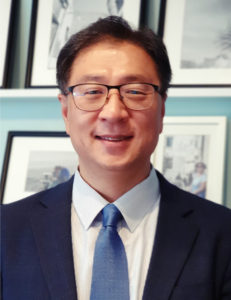
Ilcheong Yi
Senior Research Coordinator
Ilcheong YI is Senior Research Coordinator in the Social Policy and Development Programme and in the Social Dimensions of Sustainable Development Programme at UNRISD. He joined UNRISD in October 2008. He was trained as a political scientist (B.A. and M.A. from the Department of Political Science, Seoul National University, Korea) and as a social policy analyst (D.Phil from Oxford University, UK). His research interests lie in the issues of poverty, social policy, labour policy, social economy, sustainability reporting measurement methodologies and historical analysis of the economic and social development process. Prior to joining UNRISD, Ilcheong was Associate Professor at Kyushu University, Japan (2004-2008), Korea Foundation Visiting Professor in the Department of East Asian Studies, University of Malaya, Malaysia (2003-2004), and Visiting Research Fellow at the Stein Rokkan Centre, University of Bergen, Norway (2002-2003).
Major Publications & Research
- Towards universal health care in emerging economies: opportunities and challenges, London and New York, Palgrave Macmillan and UNRISD (2017)
- Learning from Korean Developmental Success: Effective Developmental Cooperation and Synergistic Institutions and Policies , London and New York, Palgrave Macmillan and UNRISD (2014)
- The Korean State and Social Policy: How South Korea Lifted Itself from Poverty and Dictatorship to Affluence and Democracy, Oxford and New York, Oxford University Press (2011)
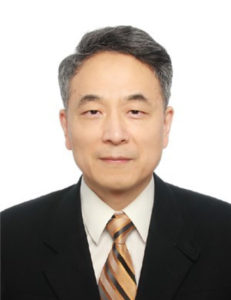
“A Conceptual Framework of Bordering”
Chae-Han Kim 김재한
Professor
Chae-Han Kim is a professor of political science and director of the International Affairs Institute at Hallym University, Korea. He has been selected as a National Fellow by the Hoover Institution of Stanford University in 2008 and as a National Scholar by the Ministry of Education, Republic of Korea, in 2010. He founded and administers the Academy of DMZ Sciences. He was president of the Korean Public Choice Society as well as the Korean Association of Local Politics. Chae-Han Kim has written more than two hundred articles and books. He received the Ilsong Prize for his article which was published in the Journal of Conflict Resolution, 1991; the DMZ Peace Prize for his study of peace; and the Prime Minister’s Commendation for his education. His twelve books have been selected as an Excellent Book by the National Academy of Sciences or by the Ministry of Culture, Republic of Korea. Chae-Han Kim has a B.A. in international relations from Seoul National University and a Ph.D. in political science from the University of Rochester with a pre-doctoral fellowship from Stanford University.
Major Publications & Research
- “Third-Party Participation in Wars,” Journal of Conflict Resolution, 1991
- “Explaining Interstate Trust/Distrust in Triadic Relations,” International Interactions, 2007
- “Lessons to Be Learned from Peace Parks around the World,” Space, 2014
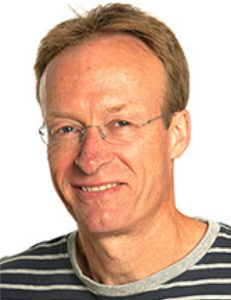
“Rethinking the Margins: Conflict and change at the edges of the state”
Jonathan Goodhand
Professor in Conflict and Development Studies
By focusing on the political economy of the margins we aim to challenge how conflict, development and statebuilding are conceptualized and responded to. We are critical of the tendency amongst policy makers to view borderlands as marginal, disconnected and ungoverned zones that need to be pacified, incorporated and developed. This state-centric perspective, which views borderlands and frontier regions as passive receptors of state policies and initiatives, misses the role that the margins play in constituting power at the centre. By focusing on the state’s margins we aim to render visible, processes that are obscured in state centric modes of analysis. Whilst some borderlands/frontiers may indeed be ‘lagging’ regions, others are laboratories of political and economic change. In these marginal spaces, the battles over the mobilization of coercion, capital and representation are particularly intense and contested. The outcomes of these battles have broader significance, as they may shape the trajectory of statebuilding and development processes within countries and wider regions.
Major Publications & Research
- Principal Investigator, GCRF-funded ‘Drugs and (dis)order’ research programme: https://drugs-and-disorder.org/about-the-project/
- Goodhand, J (2019) ‘Fragility and Resilience Anaysis: the Political Econmoy of Development in Borderlands’ in ‘From Isolation to Integration. The Borderlands of the Horn of Africa’ World Bank, Washington
- Goodhand J, B Klem & O Walton (2017) ‘Mediating the Margins: the role of brokers and the Eastern Provincial Council in Sri Lanka’s post-war transition’ Third World Thematics: A TWQ Journal, p 1-20
- Goodhand, J (2013) ‘The View from the Border’ in Korf, B and Raeymakers, T (eds) Violence on the Margins. States, Conflict and Borderlands Palgrave MacMillan, London pp 247-264.
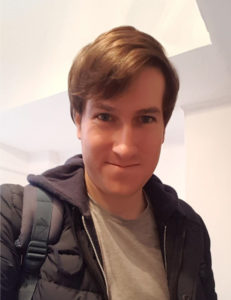
“War to peace transitions viewed from the margins”
Dr Patrick Meehan
Postdoctoral Research Fellow, SOAS University of London
Dr Patrick Meehan works in the Department of Development Studies at SOAS, where he is a Co-Investigator on a four year research project entitled ‘Drugs and (dis)order: Building sustainable peacetime economies in the aftermath of war’, which focuses on Afghanistan, Colombia and Myanmar. His research explores the political economy of violence, conflict and development, and engages specifically with the relationship between drugs and processes of statebuilding and peacebuilding, with a primary focus on Myanmar’s borderlands with China and Thailand. He has also conducted research for The UK Government Stabilisation Unit, the World Bank, Conciliation Resources and Christian Aid. He is co-author of the 2018 Stabilisation Unit report, ‘Securing and sustaining elite bargains that reduce violent conflict’.
Major Publications & Research
- Meehan, P. (2020). Precarity, poverty and poppy: Encountering development in the uplands of Shan State, Myanmar, International Journal of Drug Policy (accepted, forthcoming).
- Cheng, C., Goodhand, J., & Meehan, P. (2018). Synthesis Paper: Securing and Sustaining Elite Bargains that Reduce Violent Conflict. London: UK Government Stabilisation Unit.
- Meehan, P. (2015). Fortifying or fragmenting the state? The political economy of the drug trade in Shan State, Myanmar, 1988-2012, Critical Asian Studies, 47(2): 253–282.
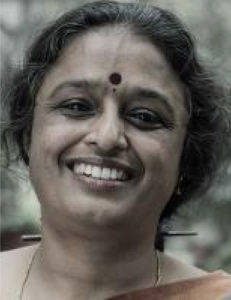
“When Placemaking Meets Peacemaking: How Subnational Sovereigns are Remapping the South Asian Borderlands”
Nimmi Kurian
Professor
Nimmi Kurian is Professor at the Centre for Policy Research, New Delhi. She also serves on the External Advisory Board, India China Institute, The New School, New York. Her research interests include Asian borderlands, federalism and foreign policy; transboundary commons; and comparative regionalism. She is the author of India China Borderlands: Conversations Beyond the Centre (Sage, 2014) and co-author of India and China: Rethinking Borders and Security (University of Michigan Press, 2016). Her recent publications include ‘Re-engaging the ‘International’: A Social History of the Trans-Himalayan Borderlands’, Journal of Borderlands Studies, (Joensuu, Finland, 2020); ‘The Future is Federal: Why Indian Foreign Policy Needs to Leverage its Border States’ (Centre for Policy Research 2019).
Major Publications & Research
- ‘Re-engaging the ‘International’: A Social History of the Trans-Himalayan Borderlands’, Journal of Borderlands Studies, (Joensuu, Finland, 2020)
- India China Borderlands: Conversations Beyond the Centre (Sage, 2014)
- India and China: Rethinking Borders and Security (University of Michigan Press, 2016)
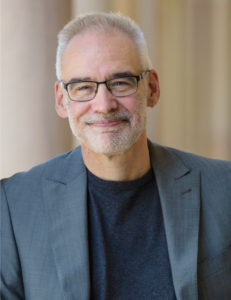
“Visual Autoethnography and International Security: Insights from the Korean DMZ”
Roland Bleiker
Professor of International Relations, University of Queensland
Roland Bleiker is Professor of International Relations at the University of Queensland, where he coordinates an interdisciplinary research program on Visual Politics. His research explores the political role of aesthetics, visuality and emotions, which he examines across a range of issues, from security, humanitarianism and peacebuilding to protest movements and the conflict in Korea. Bleiker has observed Korean politics for over 30 years. Between 1986 and 1988 he was Chief of Office of the Swiss Delegation to the Neutral Nations Supervisory Commission in Panmunjom. In this position he frequently traveled back and forth between North and South Korea. In later years Bleiker was Assistant Professor at Pusan National University and a Visiting Research Fellow at Yonsei University.
Major Publications & Research
- Bleiker, Roland. Divided Korea: Toward a Culture of Reconciliation (University of Minnesota Press, 2005, 240 pp. Paperback issue 2008.
- Bleiker, Roland (ed), Visual Global Politics (Routledge, 2018), 410 pp.
- Bleiker, Roland, “Visual Autoethnography and International Security: Insights from the Korean DMZ,” European Journal of International Security, Vol 4, 2019, pp. 274-299.
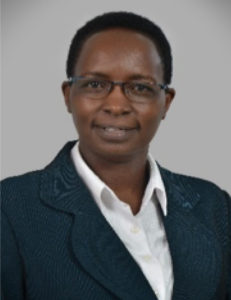
“Insights from Africa Borderlands”
Lily Murei, Ph.D.
Policy, Research & Data Specialist
Africa Borderlands Center
UNDP Resilience Hub for Africa
Lily Murei, Ph.D. is the Policy Research and Data Specialist with UNDP Africa Borderlands Centre. She is a Programme Management Specialist, with a vast experience in inclusive evidence-based programming, program assessments and action research, result-based monitoring and evaluation, project information management and reporting. Dr. Murei has a hands-on experience in stakeholders’ mobilization, partnerships management, and capacity building and policy technical advisory. She previously worked with national, regional and international organizations as well the private sector. Her most recent positions include Technical Specialist for UNDP REDD+ Project and coordinator for UNEP/UNOPs /UNDP Switch Africa Green project in Kenya, IFRC, Global Communities, MSH among others. She started her career as a volunteer coordinating water catchment rehabilitation project that promote peace between farmers and pastoralists. She is a champion of inclusive programming and SDGs.
Dr. Murei’s academic credentials include a Doctorate in in Project Planning and Management, specializing in Monitoring and Evaluation from the University of Nairobi; Master’s Degree in Project Planning and Management from the University of Nairobi and a Bachelor of Arts (Hons) in Sociology & Geography from Egerton University.
Session II. Peace by peaceful means in borderlands
22:00 KST / 13:00 GMT
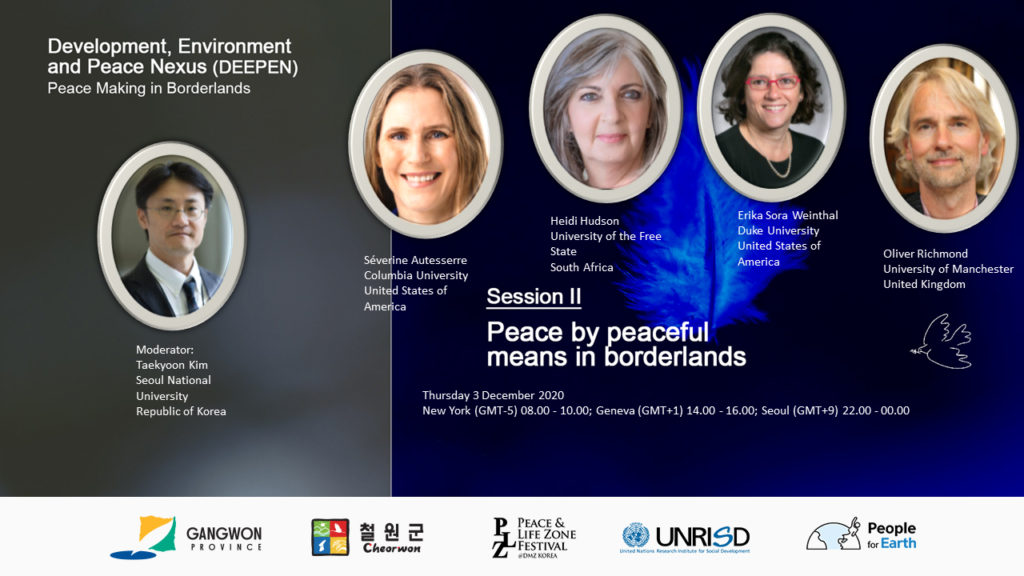
Key questions are:
- How are diverse peace approaches conceptualized and practised in the context of borderlands?
- How do everyday practices, norms and politics of those living and working in borderlands interact with interventions of the state and states-system or international structures and institutions?
- What are the lessons we can draw from diverse cases of peace-making processes in borderland contexts, in particular in the specific contexts such as the DMZ in Korean peninsula?
To answer these questions, the session mainly discusses the following issues.
- Diverse causes of conflicts, approaches to peace, means of peace, the application of those means of peace to borderlands, and the diverse outcomes and impacts of approaches to peace in borderlands
- Contextualization of peace-concepts, theories and practices through the lens of the marginalized and the fringe
- Empirical cases of successes and failures of application of peaceful means of peace-making in borderlands
- Attempts of peace-making in DMZ and their impacts within and beyond DMZ
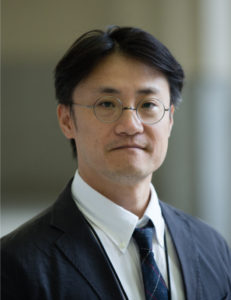
Taekyoon Kim
Professor and Vice Dean of the Graduate School of International Studies, Seoul National University
Kim Taekyoon is Vice Dean for Academic Affairs and professor of International Development at the Seoul National University, Graduate School of International Studies. Since 2018, he has served as one of the Executive Committee of the Korea International Cooperation Agency (KOICA). His career includes a Fulbright Wilson Fellow at the Woodrow Wilson International Center for Scholars, Washington, D. C., Executive Secretary at the Korean Association of International Studies (KAIS), Consultant for the UNESCO, Editor-in-Chief of Asian Journal of Peacebuilding, Visiting Professor of the University of Tuebingen, Germany and Lingnan University, Hong Kong, etc. He received D.Phil. from the University of Oxford and Ph.D. from the Johns Hopkins School of Advanced International Studies.
Major Publications & Research
- “Enhancing Mixed Accountability for State-Society Synergy: South Korea’s Responses to COVID-19 with Ambidexterity Governance,” Inter-Asia Cultural Studies 21 (co-authored) (forthcoming)
- “Bringing Drugs into Light: Embedded Governance and Opium Production in Myanmar,” Oxford Development Studies 48 (co-authored) (forthcoming).
- “From Humanitarian Relief to Democracy Aid: U.S. Foreign Assistance towards North Korea, 1996-2016,” Pacific Focus 35 (co-authored) (forthcoming).
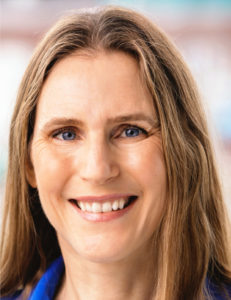
“The Frontlines of Peace: An Insider’s Guide to Changing the World”
Severine Autesserre
Professor of Political Science (Barnard College, Columbia University, USA)
Séverine Autesserre is an award-winning author, peacebuilder, and researcher, as well as a Professor of Political Science at Barnard College, Columbia University. She is the author of The Trouble with the Congo, Peaceland, and The Frontlines of Peace, in addition to articles for publications such as Foreign Affairs, International Organization, and The New York Times.
Autesserre has been involved intimately in the world of international aid for more than twenty years. She has conducted research in twelve different conflict zones, from Colombia to Somalia to Israel and the Palestinian territories. Autesserre has worked for Doctors Without Borders in places like Afghanistan and Congo, and at the United Nations headquarters in the United States. Her research has helped shape the intervention strategies of several United Nations departments, foreign affairs ministries, and non-governmental organizations, as well as numerous philanthropists and activists. She has also been a featured speaker at the World Summit of Nobel Peace Laureates and the U.S. House of Representatives. Please visit her webpage www.severineautesserre.com for more details, or follow her on Twitter at @SeverineAR.
Major Publications & Research
- The Frontlines of Peace: An Insider’s Guide to Changing the World (book, Oxford University Press, 2021)
- Peaceland: Conflict Resolution and the Everyday Politics of International Intervention (book, Cambridge University Press, 2014)
- The Trouble With the Congo: Local Violence and the Failure of International Peacebuilding (book, Cambridge University Press, 2014)
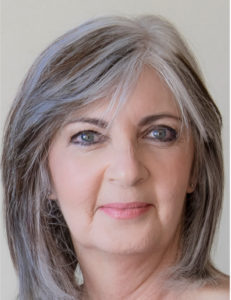
“Feminist border thinking as a means for understanding the gender-peacebuilding nexus in Africa“
Heidi Hudson
Dean of the Faculty of the Humanities, University of the Free State, Bloemfontein, South Africa
Heidi Hudson is a Professor of International Relations, Dean of the Faculty of the Humanities and former Director of the Centre for Gender and Africa Studies at the University of the Free State, Bloemfontein, South Africa. She specialises in feminist security studies, with a specific focus on Africa. Her current research interests concentrate on discursive and material dynamics of peacebuilding in the postcolony, as well as the development of Africa-focused post-human security approaches. In 2018, she was the Claude Ake Visiting Professor at the Nordic Africa Institute, Uppsala, Sweden. She is also a former Global Fellow of the Oslo Peace Research Institute (PRIO). From 2011-2017, she was co-editor of the International Feminist Journal of Politics – an interdisciplinary international journal that operates at the intersection of politics, international relations and women’s studies. She is currently an Advisory Board member of the African Peacebuilding Network of the Social Science Research Council in New York. Heidi Hudson serves on several editorial boards, and has published widely in international journals such as Peacebuilding, Security Dialogue, Security Studies, Politics & Gender, International Peacekeeping, and International Feminist Journal of Politics.
Major Publications & Research
- ‘Doing’ Security As Though Humans Matter: A Feminist Perspective on Gender and the Politics of Human Security. Security Dialogue June 2005, 36 (2): 155-174.
- Post-conflict Reconstruction and Development in Africa: Concepts, role-players, policy and practice (University of Cape Town Press, 2013), co-edited with Theo Neethling.
- A Double-edged Sword of Peace? Reflections on the Tension between Representation and Protection in Gendering Liberal Peacebuilding. International Peacekeeping 2012, 19 (4): 443-460.
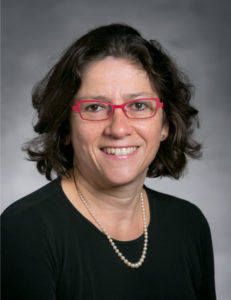
“Water, Borders, and Peacebuilding”
Erika Weinthal
Professor of Environmental and Public Policy
Erika Weinthal is a Professor of Environmental and Public Policy at the Nicholas School of the Environment at Duke University. She specializes in global environmental politics and environmental security. Her book — State Making and Environmental Cooperation: Linking Domestic Politics and International Politics in Central Asia (MIT Press 2002) — was the recipient of the 2003 Chadwick Alger Prize and the 2003 Lynton Keith Caldwell Prize. She has co-authored Oil is not a Curse: Ownership Structure and Institutions in Soviet Successor States (Cambridge University Press 2010) and co-edited Water and Post-Conflict Peacebuilding: Shoring Up Peace (Earthscan Press, 2014) and The Oxford Handbook on Water Politics and Policy (Oxford University Press 2017). Her current project is on the targeting of infrastructure in the Middle East and North Africa, in which she has coauthored articles in International Affairs and Security Dialogue. At Duke University, she is a member of the Bass Society of Fellows. She is an Editor at Global Environmental Politics. She is also a founding member of the Environmental Peacebuilding Association and serves as a Vice-President. In 2017 she was a recipient of the Women Peacebuilders for Water Award under the auspices of “Fondazione Milano per Expo 2015”.
Major Publications and Research
- E. Weinthal. State Making and Environmental Cooperation: Linking Domestic and International Politics in Central Asia (Cambridge, Mass.: MIT Press, 2002).
- E. Weinthal, J. Troell, and M. Nakayama, eds. 2014. Water and Post-conflict Peacebuilding: Shoring Up Peace (Routledge/Earthscan Press).
- C. Bruch, E. Weinthal, and J. Troell. 2020. “Water Law and Governance in Post-Conflict Settings.” Review of European, Comparative & International Environmental Law (RECIEL) 29(1): 7-20.
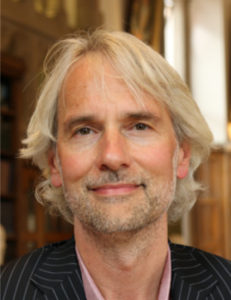
“Peace Formation from below: emancipation versus counter-peace?”
Oliver Richmond
Professor, Manchester University, UK
Oliver Richmond is Research Professor in IR, Peace and Conflict Studies at the University of Manchester, UK. He is also International Professor at Dublin City University, Ireland, and Distinguished Visiting Professor at the University of Tubingen, Germany. His publications include Peace Formation and Political Order in Conflict Affected Societies (Oxford University Press, 2016), Failed Statebuilding (Yale University Press, 2014). He is editor of the Palgrave book series, Rethinking Peace and Conflict Studies, and co-editor of the Journal, Peacebuilding.
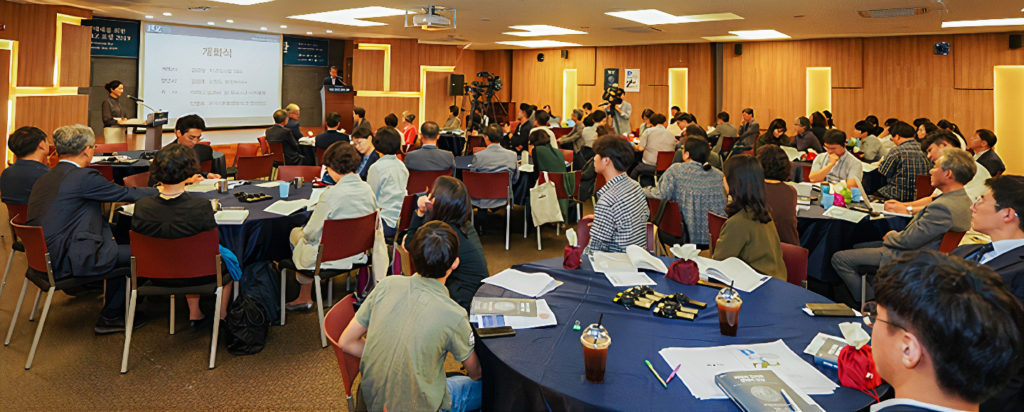
Register To Get The Online Conference Link
Are you interested in attending the conference online? Please register to get the online access link for the conference.